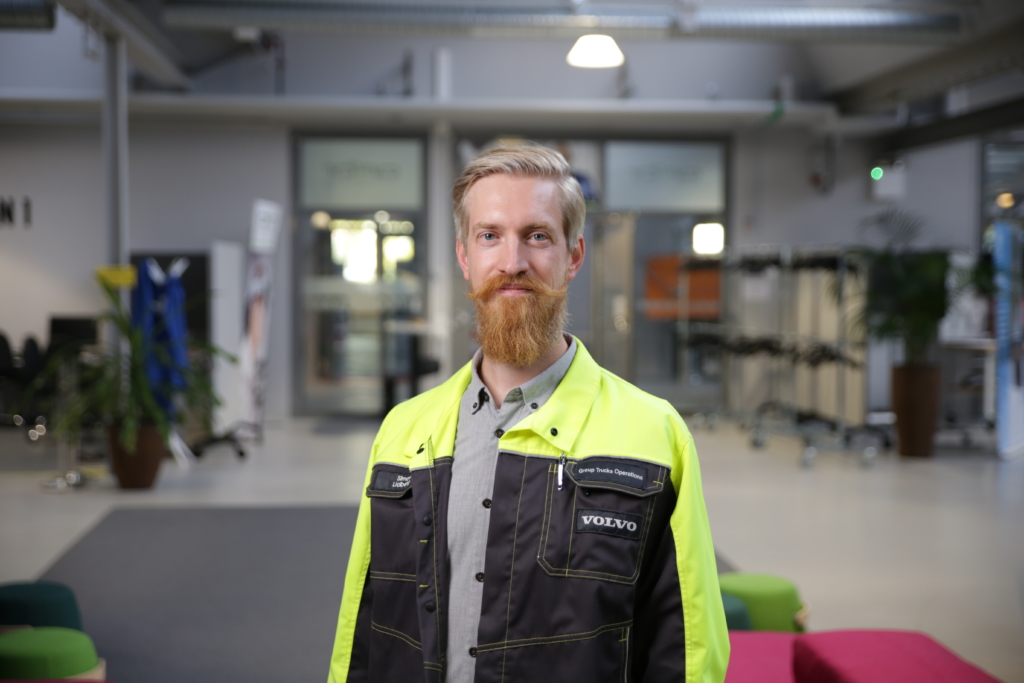Optimisation for a greener future at Volvo
Volvo is set to implement a decision support system that will help them reduce their climate impact when manufacturing engines. The first to utilise the system is Volvo Powertrain in Skövde, after which it will be rolled out to Volvo’s other factories around the world. The system has been developed by Simon Lidberg, an industrial PhD student at the Smart Industry Sweden graduate school and the University of Skövde.

Modern factories are highly complex and face new demands from customers and increasing pressure to reduce emissions. Simulation and optimisation are often used to improve parts of the factory, but local improvements do not always affect the entire system. Simon Lidberg’s research takes a holistic approach and offers solutions to optimise the entire factory.
“I have researched how to use simulation and optimisation to improve factories as a whole. The aim is to create a kind of recipe book that shows where and how to improve various machines and processes to achieve the best possible results,” says Simon Lidberg.
Sustainability Gains
The system can assist factory management in prioritising different improvements tailored to their goals—whether that involves increasing production, reducing energy consumption, or a combination of multiple objectives. The system is of great benefit to Volvo, where they see opportunities to optimise sustainability in the factory’s flows, such as energy and material use.
“We have large flows where it’s impossible for the human brain to get an overview. As we have limited resources, it is important for us as management to be able to prioritise improvement efforts correctly with a focus on the flow,” says Malin Hane Hagström, Head of Strategy and Sustainability at the Skövde plant.
Simon Lidberg will defend his thesis “Decision Support Architecture: Improvement Management of Manufacturing Sites Through Multi-Level Simulation-Based Optimisation” on 18 October at the University of Skövde.